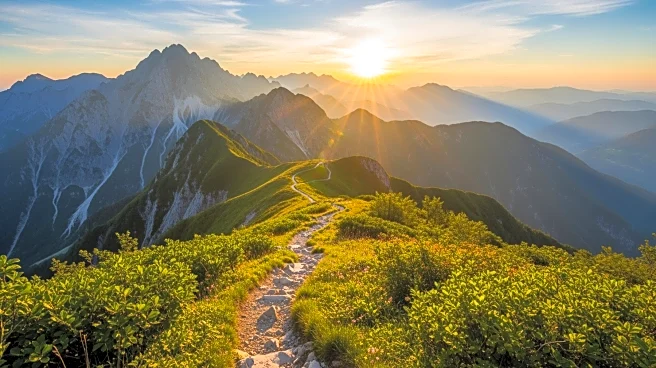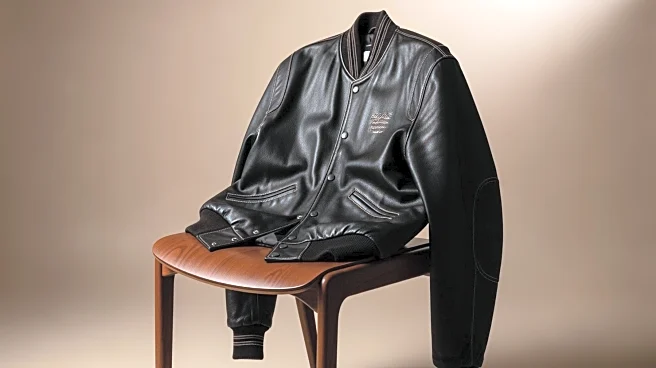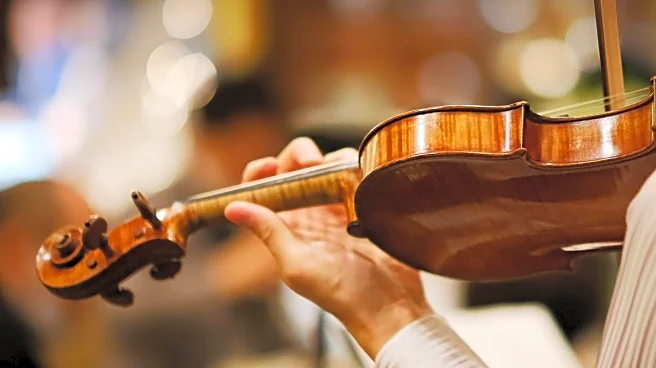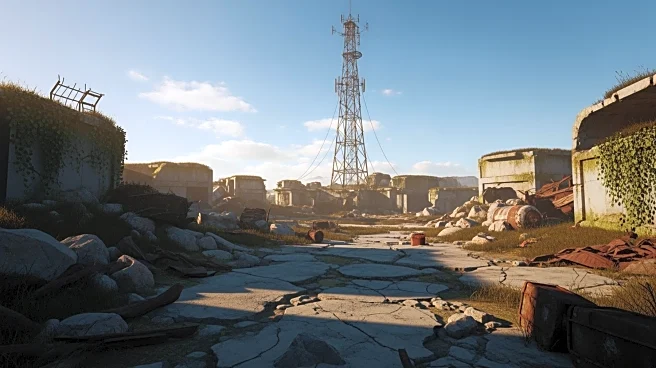What's Happening?
President Trump has issued a presidential pardon to Michelino Sunseri, a trail runner who faced federal charges for briefly using a prohibited path during an attempt to set a record on Grand Teton, the
tallest peak in the Teton Range of western Wyoming. Sunseri, an ultrarunner from Idaho, was charged by federal prosecutors for using the restricted trail, which he and his supporters argued was an example of governmental overreach. The pardon was confirmed by the White House, and Sunseri shared the news on social media, expressing his disbelief and gratitude for the unexpected presidential intervention.
Why It's Important?
The pardon granted by President Trump highlights the ongoing debate over federal regulations and their enforcement, particularly in national parks and protected areas. This decision may set a precedent for how similar cases are handled in the future, potentially influencing the balance between conservation efforts and recreational activities. It also underscores the power of presidential pardons in addressing perceived injustices, which can have significant implications for individuals facing legal challenges. The case has drawn attention to the broader issue of governmental authority and its impact on personal freedoms, especially in outdoor and sporting contexts.
What's Next?
The pardon may prompt discussions among policymakers and conservationists about the rules governing national parks and the enforcement of such regulations. Stakeholders, including environmental groups and outdoor enthusiasts, might engage in dialogue to reassess the balance between preserving natural landscapes and allowing recreational access. Additionally, this case could influence future legal strategies for individuals facing similar charges, as well as the criteria for presidential pardons. The decision may also lead to increased scrutiny of how federal laws are applied in cases involving minor infractions.
Beyond the Headlines
This event raises questions about the ethical considerations of using presidential pardons for cases involving minor infractions, and whether such actions undermine the authority of federal regulations. It also highlights the cultural significance of outdoor sports and the challenges athletes face in navigating legal boundaries while pursuing their goals. The pardon could inspire discussions on the role of government in regulating personal activities and the potential for reform in how such regulations are enforced.









